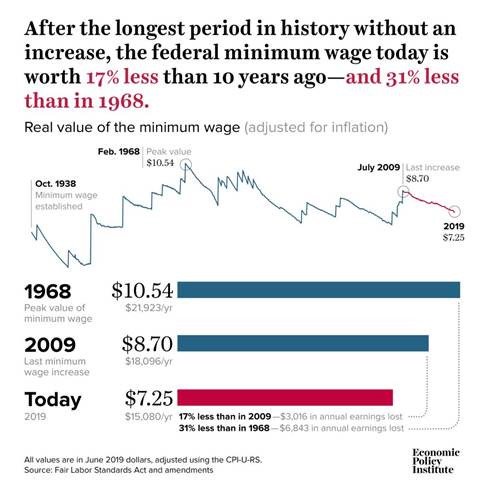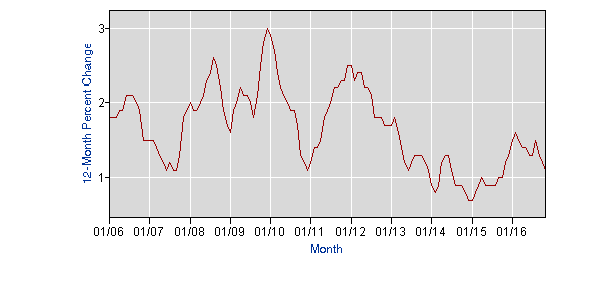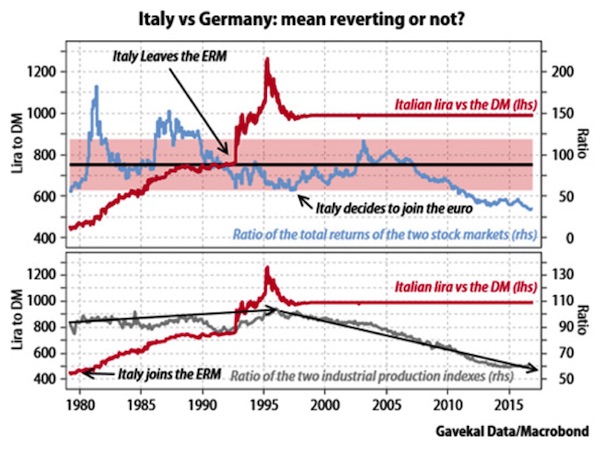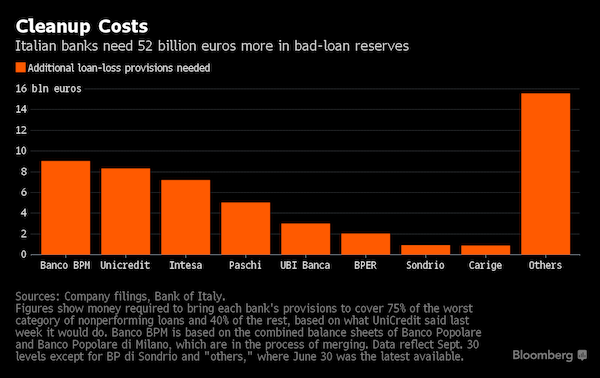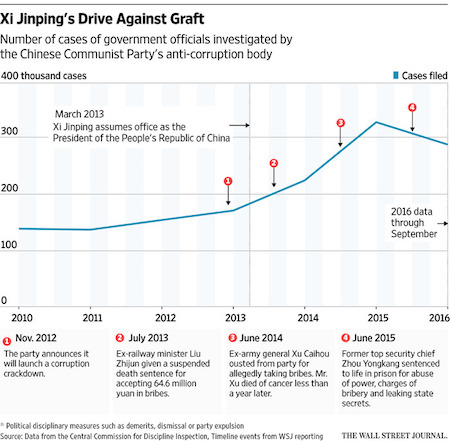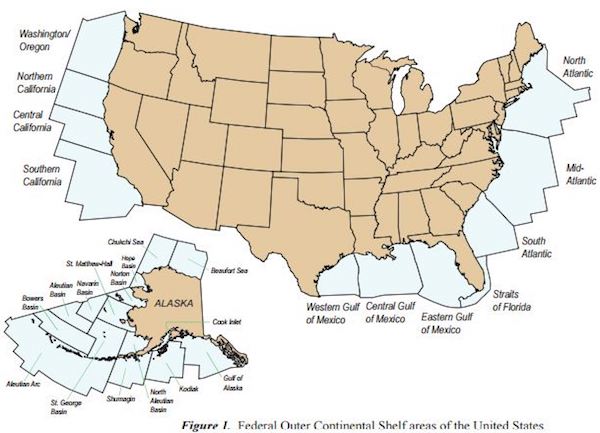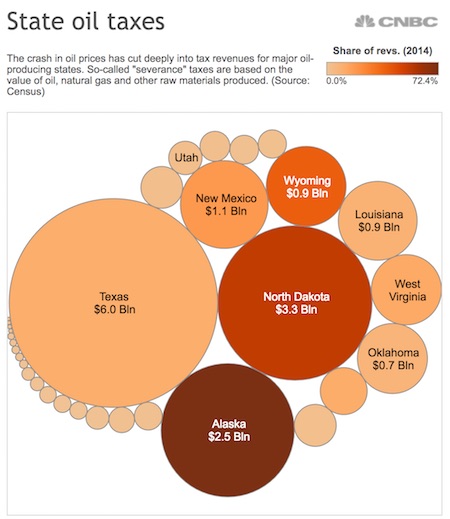
Pablo Picasso Guernica [Study] V 1937

The news will be all over Epstein for a long time to come. This overview from Ryan Grim is as good as the next one. We must wait till details start leaking out. Trump Labor Sec. Acosta will be gone, but who else pops up?
• Jeffrey Epstein Shipped Himself A 53-Pound Shredder (Grim)
Jeffrey Epstein shipped a shredder from the U.S. Virgin Islands to his Palm Beach home in July 2008, shortly after reaching a non-prosecution agreement with then-U.S. Attorney Alex Acosta, maritime records show. Then, in March of this year, shortly after a Florida federal judge invalidated that agreement, Epstein shipped a tile and carpet extractor from the Virgin Islands to his Manhattan townhouse, the records show. Epstein, a billionaire financier, was arrested in New Jersey last Saturday on charges of running a sex trafficking ring that involved luring underage girls to his New York and Florida residences, and taking them on global flights on his airplane, dubbed the “Lolita Express.”
Epstein was first accused of abusing underage girls, some of them as young as 14, more than a decade ago, and he evaded prosecution potentially due to his high-profile connections. A key challenge investigators faced when first targeting Epstein in the mid-2000s was an inability to obtain evidence through subpoena. A 2005 search of Epstein’s Palm Beach home came up empty in its quest for computers that investigators suspected contained critical evidence connected to his alleged sexual abuse of young girls. In 2007, a federal grand jury subpoenaed the computers. That August, Acosta, who is now Donald Trump’s labor secretary, entered into plea agreement discussions with Epstein.
Because of those talks, a motion to compel production of Epstein’s computers was delayed, according to the Miami Herald. Epstein held out, however, resisting the deal because it would require him to register as a sex offender. The FBI continued investigating and in March 2008, according to the Miami Herald, preparations were being made to take the case to a new federal grand jury. That would prove unnecessary, as Epstein agreed to a deal with Acosta. Without notifying the 32 identified victims, the federal government reached a non-prosecution agreement with Epstein in exchange for his guilty plea in state court to a minor offense. He pleaded guilty on June 30.
On July 7, 2008, federal prosecutors told Epstein’s attorneys via email that they intended to notify the 32 victims about the agreement. Epstein’s lawyers and the prosecutors debated how much of the agreement to reveal, settling on a less than full accounting. A week later, on July 15, Epstein received a shipment at his Palm Beach home from the port in the U.S. Virgin Islands closest to his home there, according to maritime shipping records compiled by ImportGenius and provided to The Intercept. The shipment was a 53-pound shredder.
For the next decade, Epstein’s legal troubles appeared to be behind him. Then, in November 2018, the Miami Herald published a new investigation into Epstein’s alleged child sex trafficking ring, which prompted federal investigators to take a new look at the case. However, the agreement not to prosecute first had to be invalidated. That came on February 21, when a Florida federal judge ruled that Acosta’s office had violated the Crime Victims’ Rights Act by keeping the women in the dark.
Best-selling author James Patterson on the Jeffrey Epstein case as it relates to President Donald Trump: “There were some complaints about Epstein at Mar-a-Lago. I spoke to the head of the spa there. … She said she went to Trump and he threw [Epstein] out of the club.” pic.twitter.com/kNDK4MdrEd
— Ryan Saavedra (@RealSaavedra) July 9, 2019

They’re on “on a week-long roadshow to explain the restructuring”?! What century is this?
• Doubts Over Deutsche Bank Turnaround Plan Dent Shaky Shares (R.)
Deutsche Bank shares extended losses on Tuesday on investor doubts that its chief executive can revive the lender by shrinking the investment bank and returning to its roots as banker to corporate Germany. Christian Sewing, CEO for just over a year, and his finance chief are on a week-long roadshow to explain the restructuring. To underline his commitment, Sewing plans to invest a quarter of his fixed salary — around 820,000 euros — in Deutsche shares, a person with knowledge of the matter said. Deutsche’s stock price has fallen 10 percent since Sunday’s restructuring announcement to cut 18,000 jobs in a 7.4 billion euro ($8.3 billion) “reinvention”. It is the biggest two-day decline in almost three years.
By 1312 GMT, shares were down 3.8% on the day, after sliding as much as 6.5% earlier. The bank’s bonds also fell. Analysts and investors say Sewing, who joined Deutsche Bank in 1989, is right to cut back its trading desks but question if he can make his plan work when interest rates are still low and U.S. banks have expanded their share of the German market. “There seems to be some concerns around the plan details, particularly the ability for the bank to retain revenues while cutting costs,” one of the bank’s top 25 shareholders told Reuters, citing worries the bank would need fresh equity to execute Sewing’s plan.

But if this applies to Trump, who’s next?
• Trump’s Twitter Blocking Violates Constitution – Appeals Court (CNN)
An appeals court said Tuesday that President Donald Trump violated the First Amendment by blocking users on Twitter. The 2nd US Circuit Court of Appeals upheld a New York judge’s ruling and found that Trump “engaged in unconstitutional viewpoint discrimination by utilizing Twitter’s ‘blocking’ function to limit certain users’ access to his social media account, which is otherwise open to the public at large, because he disagrees with their speech.” “We hold that he engaged in such discrimination,” the ruling adds. The judges on the appeals court concluded that “the First Amendment does not permit a public official who utilizes a social media account for all manner of official purposes to exclude persons from an otherwise-open online dialogue because they expressed views with which the official disagrees.”
The challenge to Trump’s unprecedented use of Twitter in office came from seven individuals he blocked, as well as the Knight First Amendment Institute, which argued that the President’s personal account is an extension of his office. The Justice Department argued in March that the President wasn’t “wielding the power” of the federal government when he blocked certain individuals from his personal Twitter account, @realDonaldTrump, because while the President sends tweets in his official capacity, he blocks users as a personal matter. But the appeals court disagreed with that view.

The goose and the gander.
• Ocasio-Cortez Sued Over Twitter Blocks (Hill)
One former Democratic state lawmaker and one Republican congressional hopeful announced this week that they are suing Rep. Alexandria Ocasio-Cortez (D-N.Y.) over being blocked from her personal Twitter account. Former state assemblyman Dov Hikind (D) and congressional candidate Joseph Saladino, who is running in a Republican primary for the chance to battle Rep. Max Rose (D-N.Y.), announced lawsuits this week against the freshman Democratic congresswoman, seeking injunctive relief in the form of a court order demanding they be unblocked. Saladino announced in a press release that he had filed suit in the Southern District of New York, while Hikind told Fox News that he had filed his claim in the state’s Eastern District.
“I have officially filed my lawsuit against AOC for blocking me on twitter,” Saladino tweeted. “Trump is not allowed to block people, will the standards apply equally? Stay tuned to find out!” “If we can’t talk to one another, the whole system breaks down,” Saladino added in his press release. “Look what is happening in my district when entrenched NeverTrumpers are confronted by America First ideas. Like it or not we live in the same city and we need to be professional.” In an interview with Fox News, Hikind pointed to a recent court ruling declaring that President Trump is not allowed to block critics from his official Twitter account because of his status as a public official as legal precedent for his claim.
“Just today the 2nd Circuit Court of Appeals affirmed a ruling that elected officials cannot block individuals from their Twitter accounts, thereby setting a precedent that Ocasio-Cortez must follow,” Hikind told the network. “Twitter is a public space, and all should have access to the government officials on it.”

Think of Paul Joseph Watson what you like, but this is insane. Time to tackle Zuck.
• Facebook’s New Policy Says It’s OK to Post Death Threats Against Me (PJW)
Facebook has issued a new policy update saying it’s acceptable to post death threats and incite violence against me, despite this being a crime in the United Kingdom. No, I’m not joking. A Community Standards update published by Facebook states (emphasis mine); “Do not post: Threats that could lead to death (and other forms of high-severity violence) of any target(s) where threat is defined as any of the following: “Statements of intent to commit high-severity violence; or Calls for high-severity violence (unless the target is an organization or individual covered in the Dangerous Individuals and Organizations policy)….”
Back in May, Facebook and Instagram banned me under the justification that I was a “dangerous individual”. They provided no evidence whatsoever that I had behaved in a “dangerous” manner or violated any of their policies. Facebook has designated me a “dangerous individual” and now says it’s acceptable for its users to issue death threats against me. This is a crime in the United Kingdom under the 1988 Malicious Communications Act which states, “Any person who sends to another person a letter, electronic communication or article of any description which conveys….a threat….is guilty of an offence.” The largest social media company in the world with over 2 billion users literally says its fine to incite violence against me, despite this being illegal. They are painting a target on my back.
[..] Two months ago, via my lawyers, I filed a Subject Access Request demanding Facebook turn over all information relating to me. Facebook has yet to respond to this request, despite it being a legal requirement to respond within 30 days. If and when Facebook ever responds to this legal demand, the next step will be to begin litigation proceedings. The fact that Facebook has literally said it’s OK to incite violence against me is going to be a very interesting potential addition to those proceedings.

Maybe the coal industry is not the best example in the time of climate crisis.
• EU Subsidy Loss ‘Could Wipe Out UK Farms’ Like The Coal Industry (BBC)
With three months to go before the UK could leave the European Union (EU), farmers say they still face uncertainty about future subsidy levels. Last year farmers received £3.5bn in financial support through the EU’s Common Agricultural Policy (CAP). One farmer from York said he feared farms could soon be “wiped out like the coal industry”. The government said farmers had been told subsidy levels would be maintained until the next general election. But the National Audit Office said farmers had been left unable to plan for the future and the main farming union called for “cast-iron commitments” from the government. CAP funding is one of the EU’s biggest policies with a Europe-wide budget worth more than £50bn a year.
The subsidies are designed to support the farming industry and help farmers and landowners maintain their land. Some farmers have said without long-term guarantees about future subsidy levels, farms could disappear from the landscape. “We could be wiped out like the coal industry,” said Roger Hobson, whose 4,500-acre farm near York qualifies for a subsidy worth £100,000 a year. “This is not just about growing food, these subsidies help us improve the landscape and protect endangered species. “What we fear is that in the future the farm industry will have to go to the government and compete for funding alongside the NHS and other public services. “In that situation the government is always going to pick the NHS over farmers.”

Don’t.
• UK, France To Send Forces To Syria … But Americans Will Pay (RT)
With US President Donald Trump hungry for a withdrawal from Syria, a new report claims Britain and France will send their own forces to pick up the slack, along with other allies. But the swap will cost Washington. Between 1,000 and 2,000 American troops are presently stationed in northeastern Syria, supporting anti-government Kurdish fighters. However, as the US looks to wind down its presence in Syria, the Trump administration has looked to its allies to pick up the slack. Germany rebuffed a request for ground troops on Monday, citing “well known” German policy. Britain and France, on the other hand, are willing to heed Washignton’s call, according to a new report from Foreign Policy.
Both countries have a limited number of special forces on the ground in Syria, and will commit to a troop increase of between 10 and 15 percent to allow the US to withdraw. President Trump is no fan of outsourcing American jobs to foreigners, so why have Britain and France to do America’s dirty work? Well, for one thing, it’ll silence saber-rattlers like John Bolton. Trump announced the US’ complete withdrawal from Syria in December, a country that he said at the time was “sand and death.” The move was seen as a return to the non-interventionist platform he touted during his election campaign, when he mused “why aren’t we letting ISIS go and fight Assad and then we pick up the remnants?”

Yeah, we really need Europeans involved in the Saudi war on Yemen.
• U.S Wants Military Coalition To Safeguard Waters Off Iran, Yemen (R.)
The United States hopes to enlist allies over the next two weeks or so in a military coalition to safeguard strategic waters off Iran and Yemen, where Washington blames Iran and Iran-aligned fighters for attacks, the top U.S. general said on Tuesday. Under the plan, which has only been finalized in recent days, the United States would provide command ships and lead surveillance efforts for the military coalition. Allies would patrol waters near those U.S. command ships and escort commercial vessels with their nation’s flags. Marine General Joseph Dunford, the chairman of the Joint Chiefs of Staff, articulated those details to reporters following meetings on Tuesday about it with acting U.S. Defense Secretary Mark Esper and Secretary of State Mike Pompeo.
“We’re engaging now with a number of countries to see if we can put together a coalition that would ensure freedom of navigation both in the Straits of Hormuz and the Bab al-Mandab,” Dunford said. “And so I think probably over the next couple of weeks we’ll identify which nations have the political will to support that initiative and then we’ll work directly with the militaries to identify the specific capabilities that’ll support that.” Iran has long threatened to close the Strait of Hormuz, through which almost a fifth of the world’s oil passes, if it was unable to export its oil, something U.S. President Donald Trump’s administration has sought as a way to pressure Tehran to renegotiate a deal on its nuclear program.

Or what? Sanctions? Erdogan is a wounded animal, beware.
• US Urges Turkey To Halt Drilling Operations Off Cyprus Coast (R.)
The US State Department on Tuesday urged Turkish authorities to halt energy drilling operations off the Cypriot coast in the Mediterranean, a day after Cyprus protested a Turkish ship dropping anchor there. “This provocative step raises tensions in the region. We urge Turkish authorities to halt these operations and encourage all parties to act with restraint and refrain from actions that increase tensions in the region,” a US State Department spokeswoman said in a statement. Turkey and the internationally recognized government of Cyprus have overlapping claims in that part of the Mediterranean, an area thought to be rich in natural gas.
Cyprus, a member of the European Union, has discovered natural gas in areas off the southern coast of the disputed island, though nothing has been extracted. Turkey contests the rights of Cyprus to explore for gas, sending its own drilling ships to stake claims around the island. Refinitiv Eikon shipping data showed a Turkish ship arrived off the east coast of Cyprus earlier this week. Another Turkish vessel has been spotted off the west of Cyprus since early May. The Cypriot presidency on Monday accused Turkey of a “grave violation,” and an EU statement also rebuked the Turkish action.

“Such action could target companies, individuals, and Turkey’s deep-sea hydrocarbon exploration and production sectors..”
• EU To Cut Contacts, Aid To Turkey Over Cyprus Drilling Violations (K.)
The European Union is considering suspending most high-level contacts with Turkey and cut the flow of funds in protest of the Turkish drilling activities in the Cyprus EEZ, Bloomberg reports. A range of measures will reportedly be discussed by EU ministers on Wednesday in Brussels. One measure could limit the European Investment Bank’s sovereign-backed lending in Turkey and confirm a cut of some 146 million euros ($163 million) in aid for next year. The options proposed by the European Commission also include suspending all ministerial and leaders’ meetings, as well as ongoing talks between the two sides on an aviation agreement.
The European External Action Service would also advise member states to refrain from high-level contacts with Turkey. Bloomberg reports that EU leaders have sided with Cyprus in the dispute, declaring last month that they are ready to consider sanctions if Turkey continues drilling. Such action could target companies, individuals, and Turkey’s deep-sea hydrocarbon exploration and production sectors, though they aren’t currently on the menu of the commission’s proposals. The measures will likely be agreed Wednesday and approved by EU foreign ministers when they meet in Brussels next week.

Turkey claims northern Cyprus is Turkish land.
• Turkey Rejects Greek, EU Claims That Drilling Off Cyprus Illegitimate (R.)
Turkey’s foreign ministry said on Wednesday it rejected statements by Greek and European Union officials that Turkish drilling for gas and oil off Cyprus was illegitimate and said the EU could not be an impartial mediator on the Cyprus problem. The ministry said in a statement that Turkey’s Fatih ship had started drilling activities to the west of the Mediterranean island at the start of May and its Yavuz ship had recently arrived to the east of Cyprus and would conduct drilling activities.

Sometimes it’s the simplest things. But when they start blabbing about “completely clean public transport”, you know they don’t really have a clue. A long struggle lies ahead.
• Holland Covers Hundreds Of Bus Stops With Plants As Gift To Honeybees (Ind.)
The roofs of hundreds of bus stops have been covered in plants as a gift to honeybee, by a city in the Netherlands. Mainly made up of sedum plants, a total of 316 have been covered in greenery in Utrecht. The shelters not only support the city’s biodiversity, such as honey bees and bumblebees, but they also help capture fine dust and store rainwater. The roofs are looked after by workers who drive around in electric vehicles, and the bus stops have all been fitted with energy-efficient LED lights and bamboo benches.

The city aims to introduce 55 new electric buses by the end of the year and have “completely clean public transport” by 2028. The electricity used to power the buses will come directly from Dutch windmills. Utrecht also runs a scheme which allows residents to apply for funding to transform their own roofs into green roofs.


He woke up late, but he did.
• David Attenborough: Polluting Planet May Become As Reviled As Slavery (G.)
The attitude of young people towards tackling the environmental crisis is “a source of great hope”, David Attenborough has told MPs, as he predicted that polluting the planet would soon provoke as much abhorrence as slavery. Giving evidence to the business, energy and industrial strategy committee on how to tackle the climate emergency, the naturalist and TV presenter said radical action was required. Asked by the Tory MP Patrick McLoughlin, a committee member, whether the government’s new commitment of net zero carbon emissions for the UK by 2050 was rapid enough, Attenborough said such targets were not necessarily the best approach. “In a way I would think that is not the way of focusing on the problem,” he said.
“We cannot be radical enough in dealing with the issues that face us at the moment. The question is: what is practically possible? How can we take the electorate with us in dealing with these things?” He said: “The most encouraging thing that I see, of course, is that the electors of tomorrow are already making themselves and their voices very, very clear. And that is a source of great comfort in a way, but also the justification, the reality, that these young people are recognising that their world is the future. “I’m OK, and all of us here are OK, because we don’t face the problems that are coming. But the problems in the next 30 years are really major problems that are going to cause social unrest, and great changes in the way that we live, and what we eat. It’s going to happen.”
Asked by the Labour MP Vernon Coaker to expand on how public attitudes were shifting, Attenborough replied: “There was a time in the 19th century when it was perfectly acceptable for civilised human beings to think that it was morally acceptable to actually own another human being for a slave. And somehow or other, in the space of 20 or 30 years, the public perception of that totally transformed.” He said: “I suspect that we are right now in the beginning of a big change. Young people in particular are the stimulus that’s bringing it about.

Not surte that talking about things that MIGHT happen in 600 years is very useful…
• Glacial Melting In Antarctica May Become Irreversible (G.)
Antarctica faces a tipping point where glacial melting will accelerate and become irreversible even if global heating eases, research suggests. A Nasa-funded study found instability in the Thwaites glacier meant there would probably come a point when it was impossible to stop it flowing into the sea and triggering a 50cm sea level rise. Other Antarctic glaciers were likely to be similarly unstable. Recent research found the rate of ice loss from five Antarctic glaciers had doubled in six years and was five times faster than in the 1990s. Ice loss is spreading from the coast into the continent’s interior, with a reduction of more than 100 metres in thickness at some sites.
The Thwaites glacier, part of the West Antarctic ice sheet, is believed to pose the greatest risk for rapid future sea level rise. Research recently published in the Proceedings of the National Academy of Sciences journal found it was likely to succumb to instability linked to the retreat of its grounding line on the seabed that would lead to it shedding ice faster than previously expected. Alex Robel, an assistant professor at the US Georgia Institute of Technology and the study’s leader, said if instability was triggered, the ice sheet could be lost in the space of 150 years, even if temperatures stopped rising. “It will keep going by itself and that’s the worry,” he said.
Modelling simulations suggested extensive ice loss would start in 600 years but the researchers said it could occur sooner depending on the pace of global heating and nature of the instability. Hélène Seroussi, a jet propulsion laboratory scientist at Nasa, said: “It could happen in the next 200 to 600 years. It depends on the bedrock topography under the ice, and we don’t know it in great detail yet.”

